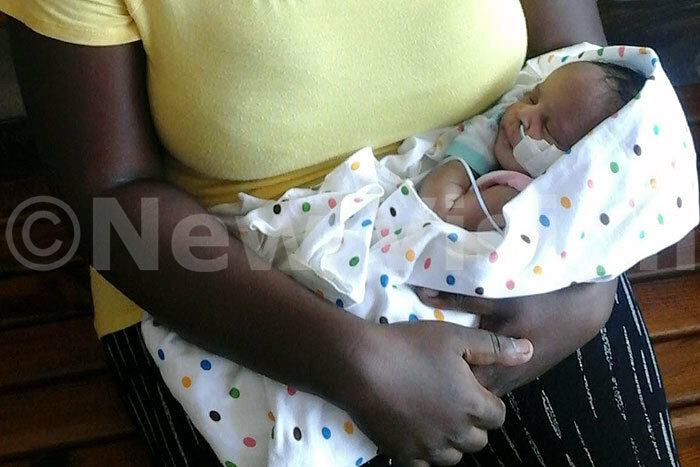Experts successfully operate on baby born with rare defects
Nakasule recalls that her only child could not breast feed, swallow anything or pass stool.
The last thing Sophia Nakasule had expected was to give birth to a baby with multiple defects.
The day after her delivery at Kibuli Hospital in Kampala, doctors took Nakasule's baby for an X-ray and discovered that the newborn girl could not shallow.
She was suffering from a defect known as oesophageal atresia with tracheal oesophageal fistula.
It is a condition which occurs when the upper part of the oesophagus - or foodpipe or gullet - does not connect with the lower esophagus and stomach.
Nakasule, a first-time mother, recalled that her baby could not breastfeed, swallow anything, or even pass stool.
That got the 27-year-old scared - and perplexed at the same time, considering that she never experienced any grave complications during her pregnancy.
Before the baby was transferred to Mulago Hospital, health experts at Kibuli Hospital called Mulago's senior paediatric consultant Dr. John Sekabira and told him that they had delivered a baby with multiple defects.
Sekabira intervened because he wanted to save the life of the baby and that is when the little girl was transferred to Mulago for further management.
Alongside a team of experts, Sekabira re-examined the baby and detected that the baby also had an imperforate anus - a condition where the opening to the anus is missing or blocked.

Following the operation, the baby is understood to be in good condition. (Credit: Violet Nabatanzi)
Due the ongoing renovation at the main referral hospital, the health experts requested International Hospital Kampala (IHK) to conduct the surgery from there.
IHK, under the Hope Ward initiative, allowed to finance the bill for the one-and-a-half-week-old baby.
Sekabira led the team of doctors and nurses at IHK and successfully operated on the child. She is currently in good condition.
According to experts, this kind of surgery is always done soon after birth. Both defects can usually be repaired at the same time.
Sekabira said that this condition is life-threatening and if a baby is not operated on early enough, it cannot survive beyond two weeks. This illustrates just how close Nakasule was to losing her first child.
Such defects are understood to only occur once in 500 live births.
Brenda Naluyima, the head of marketing and communications at International Medical Group, said the Hope Ward initiative aims at providing complex treatment or surgery for people who cannot afford to pay for it.
"'We have done a variety of cases for children and adults but this year we focused on babies born with birth abnormalities."